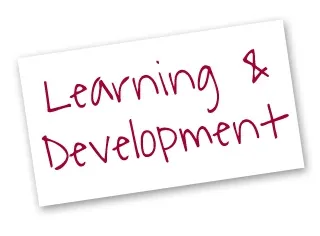A 3 Point Perspective on Learning & Development for Startups

Learning & development (L&D) is an integral part of working at any organization. It is by constantly up-skilling employees that they will grow and add more value.From an employee engagement standpoint, L&D again plays a critical role. In my article on employee engagement, I had written about the 4 psychological drives that affect motivation. Of these, at least 2 – the Drive to Acquire and the Drive to Comprehend – are directly linked to learning. In the former, learning manifests itself as an intangible commodity that elevates the employee’s status compared to others. In the latter, learning is what enables a greater understanding of the work, enabling employees to do more.
Large corporates spend billions of dollars every year on training and up-skilling employees. The results of these investments are somewhat debatable, but that has more to do with execution and misplaced intent rather than a fundamental flaw in the concept of L&D itself.
Investing huge amounts of time and money into employee learning often does not seem feasible for early stage startups. It can become a vicious cycle – you don’t invest in learning because you want employees to be spending every working hour on productive work but if you don’t make this investment, productivity won’t go up!
Then again, does L&D have to be a time & money sucking monster that corporate P&L statements may seem to suggest? Does learning have to be formalized into training programs? Here are my views on managing L&D at startups:
All learning is not training
A Google search on the difference between learning and training threw up 66 million results! Obviously, people have given this a lot of thought. The dominant theme was that training is owned by the one who offers it and learning is owned by the one who receives it.
I would take this a step further and contextualize this for startups. Training tends to be something which is more process driven whereas learning is really an outcome. Learning could happen through a bunch of ways, of which, training is just one. So when you think about L&D for your startup, think beyond just formal training and you will see that learning doesn’t have to be a strain on either finances or time.
One idea is to have weekly info-share sessions within the team wherein each employee picks a topic and briefs the team on it. It could be anything – a book they just read, something about the work they do, an experience at work... What is brilliant about this approach is that when preparing for the session, the facilitating employee will be forced to prepare and this in itself will lead him/ her to learn more!
A learning culture is more important than a hundred training programs
This should be the starting point when you think of L&D. Learning is not something that can be thrust upon people; there has to be an innate desire to learn. You need an organization culture that promotes sharing and learning. According to Paul J. H. Schoemaker (entrepreneur, author and professor at Wharton), you need to “make learning a daily habit”. In his article – How to Create a Positive Learning Culture – Schoemaker shares how leaders (in this case the entrepreneur) need to “be the focal point as well as champions of learning”.
Learning comes when fear of failure & blame are taken out of the equation. Employees should feel free to experiment as long as they learn from this. Instead of trying to cover up their mistakes, they should be encouraged to discuss these with the team. Let everyone brainstorm and conclude how things could have been done differently.
As Albert Einstein said, “I never teach my pupils; I only attempt to provide the conditions in which they can learn.”
True learning comes from doing
One of Confucius’ many profound quotes is – "What I hear, I forget. What I see, I remember. What I do, I understand." A key issue why many corporate training programs fail to achieve their objectives is that employees do not get a chance to implement what they have learnt. The Training department works with an agenda to run x number of training programs while operations managers and pushing day-to-day work. There are often long periods of time between the employee attending a training program and them actually getting a chance to implement their learnings.
As a startup, you can do much better since you don’t have multiple departments to deal with. You don’t have to roll out formal training programs and grapple with aligning the timing of training with ability to apply the learnings. After every learning session, ask employees to pick something where they will try out what they learnt. And then ask them to come back and talk about their experiences.
The real learning comes after we think we have learnt - from applying the learning.







